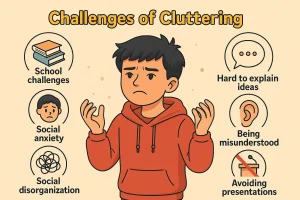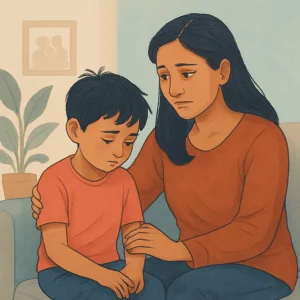Recovering from Marital Trauma: Effective Strategies
By Prapoorna M
Last Updated: August 12, 2024
Marital trauma can be a heavy burden on a relationship, impacting both partners deeply. It can stem from various sources such as a significant loss, an accident, emotional abuse, or even financial crises. Understanding and addressing this trauma is crucial for maintaining a healthy and fulfilling relationship.
Healing from marital trauma is not just about surviving—it’s about thriving together. When trauma occurs, it disrupts the emotional and psychological balance between partners, making it essential to take steps towards recovery. Without proper healing, the relationship may suffer from communication breakdowns, emotional distancing, and a lack of intimacy.
Book Your Marriage Counselling Now
Understanding Marital Trauma
Defining Marital Trauma
Marital trauma refers to emotional and psychological distress that one or both partners experience due to significant negative events affecting their relationship. This trauma can disrupt the harmony and balance within a marriage, leading to various emotional and relational challenges.
Common Sources of Trauma in Marriage
Marital trauma can arise from multiple sources, each impacting the relationship in unique ways:
- Accidents or Illness: A serious accident or a major illness can drastically change the dynamics within a marriage. The stress and anxiety associated with these events can create a heavy emotional burden.
- Loss of a Loved One: Grieving the death of a family member or close friend can bring intense sorrow and strain into a marriage, making it difficult for partners to support each other effectively.
- Emotional Abuse: Experiencing emotional abuse within the relationship can lead to deep psychological scars, eroding trust and affection between partners.
- Financial Crises: Sudden financial instability can cause significant stress, leading to arguments and a breakdown in communication.
- Infidelity: Discovering a partner’s infidelity can be profoundly traumatic, shaking the foundation of trust and security in the marriage.
Impact on the Relationship
It is important to recognize that trauma affects each partner differently. One person might become withdrawn and distant, while the other might feel overwhelming anxiety or anger. Despite these individual differences, the overall impact on the relationship can be profound:
- Emotional Distancing: Trauma can cause partners to retreat into their own worlds, creating a gap in emotional intimacy.
- Communication Breakdown: Effective communication often suffers as partners struggle to express their feelings and needs.
- Intimacy Issues: Both physical and emotional intimacy can wane, leaving partners feeling disconnected and isolated.
- Heightened Conflict: Unresolved trauma can lead to frequent arguments and increased tension, as partners may become overly reactive to stressors.
Also Read: Better ways to communicate in relationships
Signs of Marital Trauma
Recognizing the signs of marital trauma is the first step toward healing. When trauma infiltrates a marriage, it can manifest in several ways, affecting the emotional and physical dynamics between partners. Here are some common signs:
- Emotional Distancing Between Partners: Trauma often causes partners to withdraw emotionally. You might notice that you or your partner are less emotionally available or more detached. This distancing can make it difficult to feel connected, leading to feelings of isolation within the relationship.
- Communication Breakdowns: One of the most noticeable signs of marital trauma is a breakdown in communication. Trauma can make it hard for partners to express their feelings and needs clearly. Misunderstandings become more frequent, and productive conversations can turn into arguments or end in frustration.
- Intimacy Issues: Both physical and emotional intimacy can suffer when there is unresolved trauma. You might find that you or your partner are less interested in physical closeness or that emotional sharing becomes rare. This lack of intimacy can further strain the relationship, making it feel more like a cohabitation than a partnership.
- Anger, Blame, and Resentment: Trauma can lead to heightened emotions, including anger and resentment. These feelings might be directed at each other or at the situation that caused the trauma. Blame can become a common response, with each partner feeling that the other is responsible for their pain. This cycle of negativity can be hard to break without conscious effort.
- Reactivity to Trauma-Related Triggers: Partners dealing with trauma might become overly reactive to specific triggers that remind them of the traumatic event. These reactions can range from anxiety and fear to anger and sadness. Understanding and recognizing these triggers is essential for both partners to navigate the relationship without unintentionally causing distress.
Effective Strategies for Recovering from Marital Trauma
Recovering from marital trauma requires a combination of empathy, patience, and proactive strategies. Here are some effective approaches to help you and your partner heal and strengthen your relationship.
Show Empathy
- Validate Your Partner’s Feelings
Recognize and acknowledge your partner’s emotions without judgment. Let them know that their feelings are valid and important. Phrases like, “I understand that you’re hurting,” can go a long way in showing support. - Create a Safe Space for Emotional Expression
Encourage your partner to express their emotions openly. Make sure they feel safe to share their thoughts and feelings without fear of criticism or dismissal. This safe space is crucial for emotional healing. - Avoid Toxic Positivity
While it’s good to stay positive, avoid downplaying your partner’s experiences with phrases like “just think positive” or “it could be worse.” Such statements can invalidate their feelings and hinder their healing process.
Recognize and Manage Triggers
- Identify Common Triggers
Work together to identify specific situations, places, or events that trigger traumatic memories. Awareness of these triggers can help in managing them effectively. - Support Your Partner in Avoiding or Coping with Triggers
Once you know the triggers, help your partner avoid them when possible. If avoidance is not an option, develop coping strategies together. Techniques like deep breathing, mindfulness, or taking a short break can be helpful. - Implement Calming Techniques Like the 5-4-3-2-1 Method
This grounding technique can help your partner stay present during triggering moments. Have them focus on five things they can see, four things they can feel, three things they can hear, two things they can smell, and one thing they can taste. This exercise can bring their attention back to the present and reduce anxiety.
Allow Room for “Bad Days”
- Understand That Recovery Is Non-Linear
Healing from trauma is a process with ups and downs. Recognize that some days will be harder than others and that this is a normal part of recovery. - Be Patient and Compassionate on Challenging Days
On difficult days, be patient and offer extra support and understanding. Your compassion can help your partner feel less isolated and more supported. - Set Boundaries to Protect Your Mental Health
While supporting your partner, it’s also important to take care of your own well-being. Establish boundaries to ensure you don’t get overwhelmed or burnt out.
Engage in Fun and Bonding Activities
- Plan Enjoyable Activities to Create Positive Experiences
Engage in activities that you both enjoy. Whether it’s watching a movie, going for a walk, or cooking together, these moments can create positive memories and help distract from the trauma. - Use Fun as a Distraction and Bonding Tool
Fun activities can serve as a healthy distraction from the trauma and provide opportunities to bond. Shared laughter and joy can strengthen your connection. - Encourage Shared Hobbies and Interests
Finding common interests and hobbies can bring you closer and provide a sense of normalcy and enjoyment in your relationship.
Encourage Professional Help
- Discuss the Benefits of Therapy for Trauma Recovery
Therapy can be incredibly beneficial for trauma recovery. Discuss the potential benefits with your partner, emphasizing how professional help can facilitate healing. - Highlight the Role of Trauma-Informed Therapists
Trauma-informed therapists are trained to handle trauma-specific issues. They can provide tailored support and coping strategies that are crucial for recovery. - Mention That Seeking Professional Help Can Aid Both Partners
Professional help can also support you as a partner. Therapists can offer guidance on how to best support your partner and take care of yourself.
Practice Self-Care and Mindfulness
- Importance of Self-Care for Both Partners
Self-care is essential for maintaining your mental health. Ensure that both you and your partner are taking time to rest, relax, and engage in activities that bring joy. - Techniques for Mindfulness and Meditation
Practicing mindfulness and meditation can help reduce stress and improve emotional regulation. Simple practices like deep breathing or guided meditations can be very effective. - Encourage Physical Activities to Release Endorphins
Physical activities like walking, jogging, or yoga can boost mood by releasing endorphins. Encourage each other to stay active as part of your self-care routine.
Create and Maintain Boundaries
- Establish Personal Boundaries to Prevent Burnout
Identify your limits and communicate them clearly with your partner. This helps in preventing emotional exhaustion and ensures that you can provide sustained support. - Communicate Boundaries Clearly with Your Partner
Have open discussions about your boundaries. Clear communication can prevent misunderstandings and ensure that both partners respect each other’s limits. - Respect Each Other’s Limits
Mutual respect for boundaries is crucial. Understand and honor each other’s need for space and time to recharge.
Reconnect Through Intimacy
- Gradually Rebuild Emotional and Physical Intimacy:
Take small steps to rebuild intimacy. This might include holding hands, spending quality time together, or sharing your thoughts and feelings. - Use Relationship Counseling to Guide This Process:
A relationship counselor can help guide you through the process of reconnecting. They can provide strategies and exercises to rebuild intimacy in a healthy way. - Foster a Sense of Vulnerability and Trust
Creating an environment where both partners feel safe to be vulnerable can foster deeper trust and intimacy. Share your feelings and listen to your partner with empathy.
Know more: Lack of Sexual intimacy in Relationships
When to Seek Professional Help
Recognizing when to seek professional help is crucial for recovering from marital trauma. Here are some indicators that it might be time to consider counseling and how therapy can assist in the healing process.
Indicators That It’s Time to Seek Counseling
- Persistent Emotional Distress: If you or your partner are experiencing ongoing feelings of sadness, anxiety, or anger that don’t seem to improve, it might be a sign that professional help is needed.
- Communication Breakdowns: When attempts to talk about issues only lead to more misunderstandings or conflicts, counseling can provide the tools to improve communication.
- Intimacy Issues: If emotional or physical intimacy has significantly decreased and efforts to reconnect have not been successful, a therapist can help address these issues.
- Increased Conflict: Frequent arguments and heightened reactivity to minor issues can indicate underlying trauma that needs to be addressed professionally.
- Emotional Withdrawal: If one or both partners are withdrawing emotionally and becoming distant, it’s a clear sign that intervention may be necessary.
How Professional Therapy Can Assist in Trauma Recovery
- Structured Support: Therapists provide a safe and structured environment to explore and address traumatic experiences. They help both partners understand their feelings and reactions, which is essential for healing.
- Effective Communication Techniques: Therapy offers tools and strategies to improve communication between partners. Learning how to express feelings and needs effectively can reduce misunderstandings and conflicts.
- Coping Strategies: Professional therapists can teach coping mechanisms tailored to dealing with trauma. These strategies help manage stress and triggers more effectively.
- Rebuilding Trust: A therapist can guide couples through the process of rebuilding trust and intimacy. This includes addressing past hurts and developing a plan to move forward together.
- Individual and Joint Sessions: Therapy can include both individual and joint sessions. This approach ensures that each partner can work on personal issues while also strengthening the relationship.
Know more: REBUILDING TRUST IN RELATIONSHIPS
Encouragement to Seek Help Without Shame or Hesitation
Seeking professional help is a positive and proactive step towards healing. There is no shame in admitting that you need assistance to navigate the complexities of trauma recovery. In fact, it takes courage to acknowledge the need for help and to take action to improve your relationship.
Remember, you don’t have to go through this alone. Professional therapists are trained to help couples heal and rebuild their relationships. If you’re considering therapy, it’s a step in the right direction towards a healthier and happier marriage.
Conclusion
In the journey of healing from marital trauma, support and understanding are key to building a resilient relationship. It’s a path that requires effort, patience, and mutual commitment. By facing challenges together, practicing empathy, and seeking professional help when needed, you can strengthen your bond and move forward. At Wellness Hub, we’re here to guide you through this process with personalized care and expertise. Don’t navigate this journey alone—reach out to Wellness Hub for the support you need to rebuild and reconnect. Together, you can overcome and emerge stronger.
Frequently Asked Questions:
1. What is marital trauma?
Marital trauma refers to the emotional and psychological distress that one or both partners experience due to significant negative events affecting their relationship. It can stem from accidents, loss of a loved one, emotional abuse, financial crises, or infidelity.
2. How can I support my partner who is dealing with marital trauma?
Supporting your partner involves showing empathy, recognizing and managing triggers, allowing room for bad days, engaging in fun activities, encouraging professional help, practicing self-care, maintaining boundaries, and reconnecting through intimacy.
3. What are common signs of marital trauma?
Common signs include emotional distancing, communication breakdowns, intimacy issues, anger, blame, resentment, and heightened reactivity to trauma-related triggers.
4. How can professional therapy help in recovering from marital trauma?
Professional therapy provides structured support, effective communication techniques, coping strategies, and guidance on rebuilding trust and intimacy. Trauma-informed therapists are specially trained to help couples navigate and heal from trauma.
5. When should we seek professional help for marital trauma?
Seek professional help if you experience persistent emotional distress, communication breakdowns, intimacy issues, increased conflict, or emotional withdrawal. Therapy can provide the necessary tools and support for healing.
6. How long does it take to recover from marital trauma?
Recovery from marital trauma is a non-linear process that varies for each couple. It requires time, effort, and patience. Consistently implementing effective strategies and seeking professional help can facilitate the healing journey.
7. Can we rebuild intimacy after experiencing marital trauma?
Yes, rebuilding intimacy is possible with effort and patience. Gradually reconnect through emotional and physical closeness, engage in shared activities, and consider relationship counseling for guidance.
8. How can self-care help in recovering from marital trauma?
Self-care is crucial for maintaining mental health. It includes practicing mindfulness, engaging in physical activities, and setting aside time for activities that bring joy and relaxation.
9. What are some effective strategies for managing trauma-related triggers?
Effective strategies include identifying common triggers, supporting your partner in avoiding or coping with them, and implementing calming techniques like deep breathing and the 5-4-3-2-1 grounding method.
10. How can Wellness Hub assist in recovering from marital trauma?
Wellness Hub offers experienced therapists who provide personalized support and guidance for individuals and couples dealing with trauma. Our services include trauma-informed therapy, effective communication techniques, and strategies for rebuilding trust and intimacy.
About the Author:
Prapoorna Mangalampalli
M.Sc., M.A., (Dual Masters in Psychology & English) – Counselor (6+ years of experience)
Prapoorna, with dual Master’s degrees in Psychology and English and over 6 years of experience, elevates human experiences through insightful counseling. She excels in online, marital, relationship, child, family, and career counseling. At Wellness Hub, she thrives in a team environment, valuing innovation, compassion, and client success.
Book your Free Consultation Today
Parent/Caregiver Info:
Client’s Details:
* Error Message









